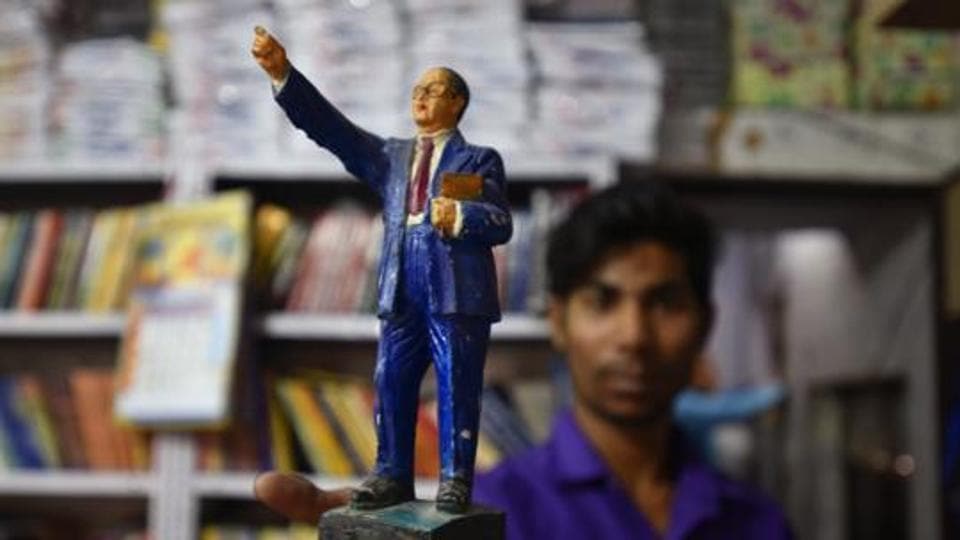We all are aware of the constitution of our country and the reservation policy enshrined under it. When we think about reservations we only imagine or consider the current scenario which automatically makes it a bad move and creates hatred among different communities of our country.
Is it discriminatory or we are just looking at it in the wrong way? The following question has been answered by the apex court through various case laws. Before discussing it, let’s have a brief discussion on the scheme of reservation.
The scheme of reservation was introduced by Dr BHIM RAO AMBEDKAR who is called the father of INDIAN CONSTITUTION. When the drafters were busy discussing the articles of the constitution, it was BHIM RAO AMBEDKAR who initiated this debate of reservation as being a native of lower caste because he faced a lot of discrimination from the upper society.
He even stated in the biography that when he came back to India after the completion of his studies from abroad when he asked for a room in a hotel, he was denied a room because of his caste, and after so many efforts when he finally got a room, next morning when he woke up, He heard a lot of noise from outside, there was a group of upper caste people who were there to beat him just because he stayed in one of the room. He further stated that he was not allowed to drink water from general pumps because of his caste. After reading this you can easily understand why this scheme of reservation was introduced.

PURPOSE OF RESERVATION
The purpose of reservation is quite clear, to advance the backward communities like SC and ST and also OBC so that they can upgrade themselves from their backwardness and can match the pace of social development.
EXTENT OF RESERVATION
Reservation is available in the following Indian states:
Government Educational Institutions (such as IITs, IIMs, and so on) – as per Article 15 – (4), (5), and (6) Government Jobs (such as IAS, IPS, and so on) – as per Article 16 – (4) and (6) Legislatures (Parliament, and State Legislature) – as under Article 334
Before 2019, the reserve was granted mostly based on socioeconomic and educational disadvantage (caste). However, with the 103rd constitutional amendment in 2019, economic backwardness is also taken into account. Aside from the reservation quota, certain reservation categories are also given extra relaxations such as upper-age relaxations, additional attempts, and lower cut-off points.
SC/ST RESERVATION
Reservation is offered in India in The goal of granting reservations to the Scheduled Castes (SCs) and Scheduled Tribes (STs) in services is not merely to give jobs to select members of these communities.
Its primary goal is to empower them and ensure their involvement in the State’s decision-making process. Furthermore, the state is eager to put a stop to practices such as untouchability. Scheduled Castes (SC) have a 15% quota in jobs and higher education, while Schedule Tribes (ST) get a 7.5 per cent quota in jobs and higher education.
OBC RESERVATION
Based on the Mandal Commission Report, the Other Backward Classes (OBC) Reservation was established (1991). In government jobs and higher education institutions, OBCs have a quota of 27 per cent. Concerning the OBC reservation, however, there is a concept of ‘creamy layer.’ Only individuals from OBC who fall under the Non-Creamy Layer would be eligible for OBC reservations.
The creamy layer idea uses money and social position as factors to remove some of the OBC’s most privileged members from the degree of quota. This principle also ensures that the benefits of reserving are not spread to future generations.
EWS RESERVATION
The Central Government has implemented a 10% reservation quota for Economically Weaker Sections (EWS) candidates in government posts and educational institutions. However, many people are confused regarding EWS Reservation Eligibility. If you are a deserving applicant from the Economically Weaker Section (EWS), we hope you do not lose out on the EWS quota for seats in government jobs (such as IAS, IPS, and so on) and government institutes (like the IIMs and IITs).
ELIGIBILITY
If you fall under any category, you cannot claim a reservation under EWS
- If you have a family income of Rs 8 lakh
- If your family has agricultural land of 5 acres or more
- If your family owned a residential flat of 1000 sq ft
- If your family owned a residential flat of 200 sq ft in notified municipality
At last, I can say that the policy of reservation was a great move but in today’s era it became a curse for many communities because of the political vendetta of politicians who use reservation as their weapon to get votes in the election. Even the SC said that it is sad that reservation became a weapon for politicians to gain power.
Also Read: Intolerance and Hatred. Is this the newly developed India?